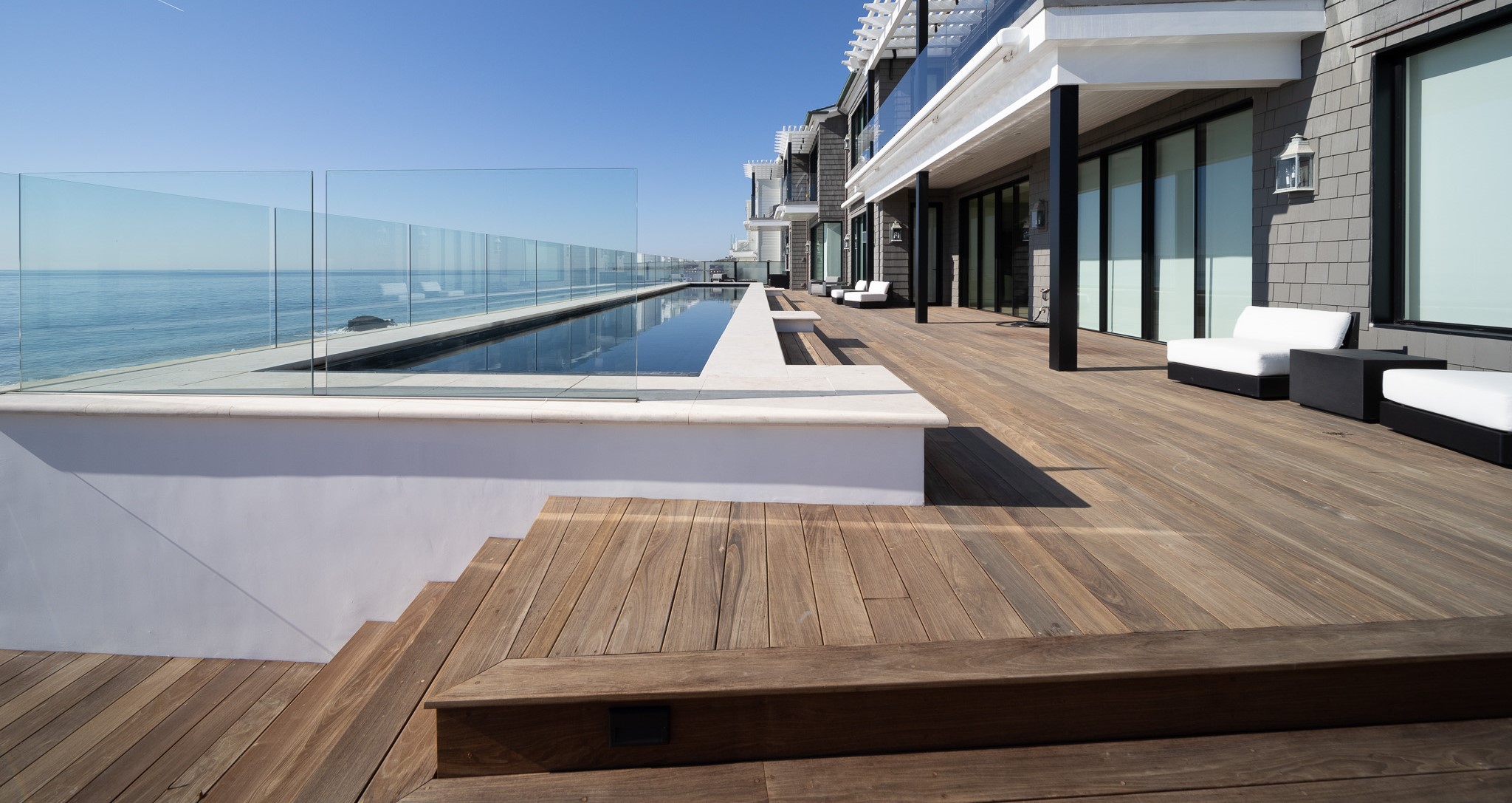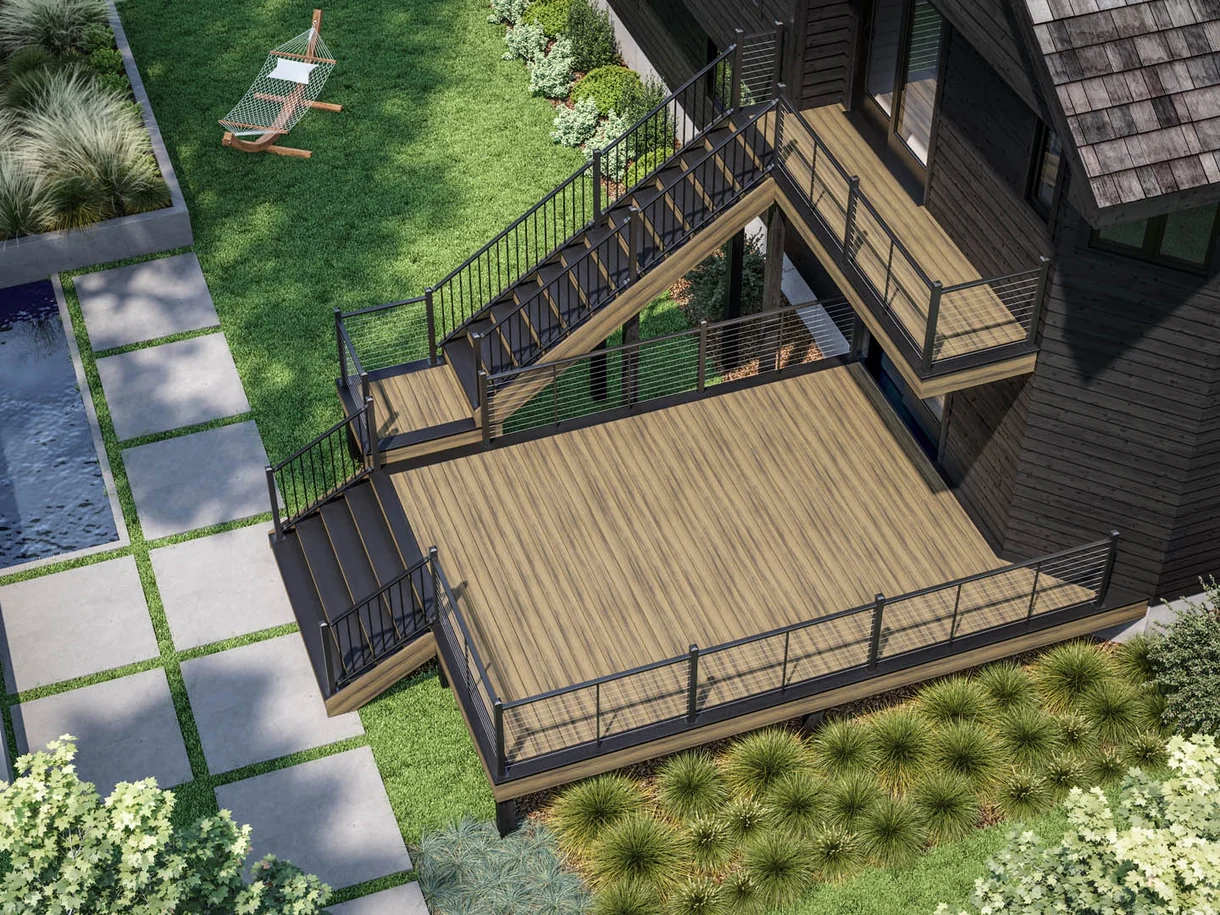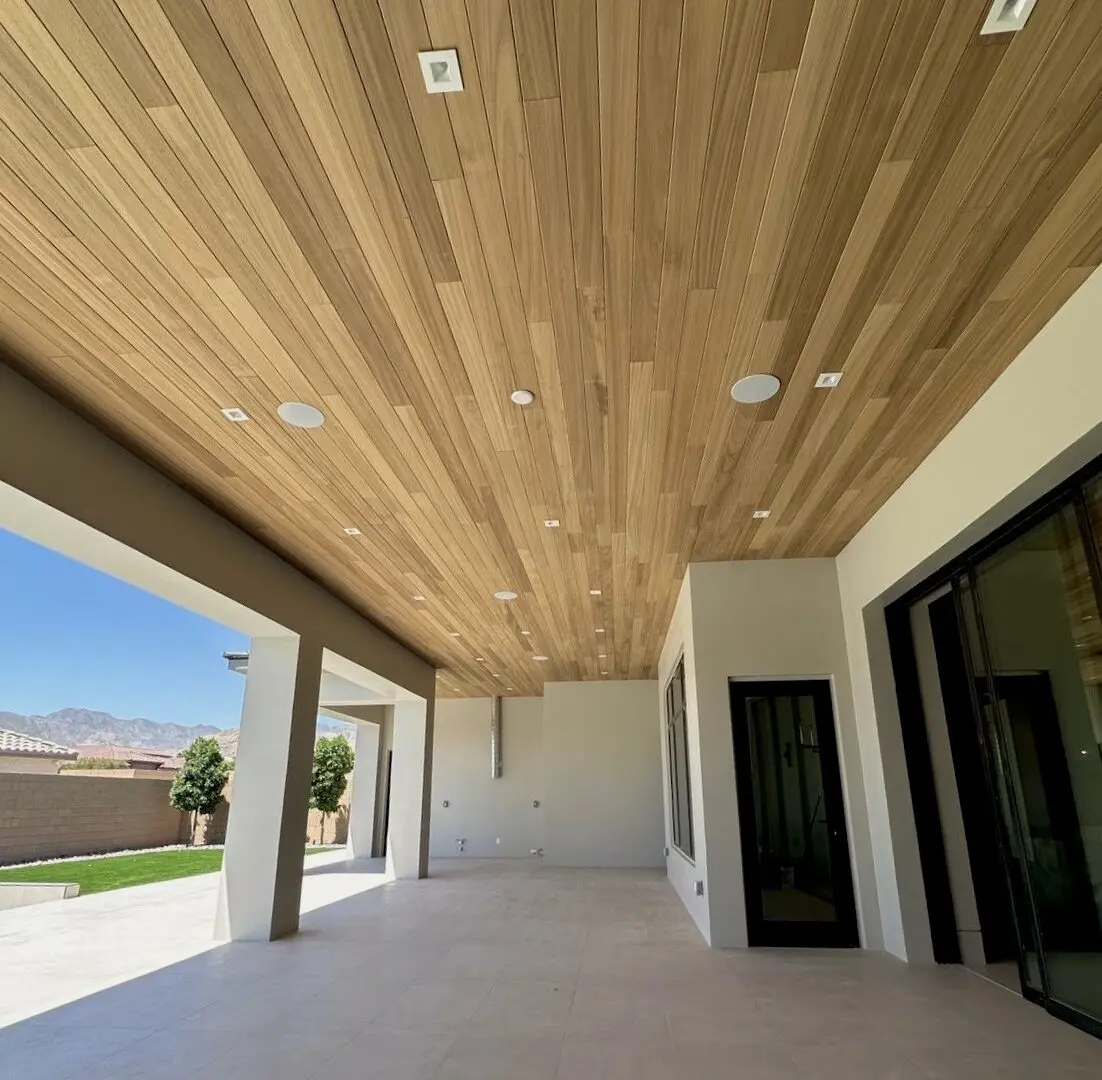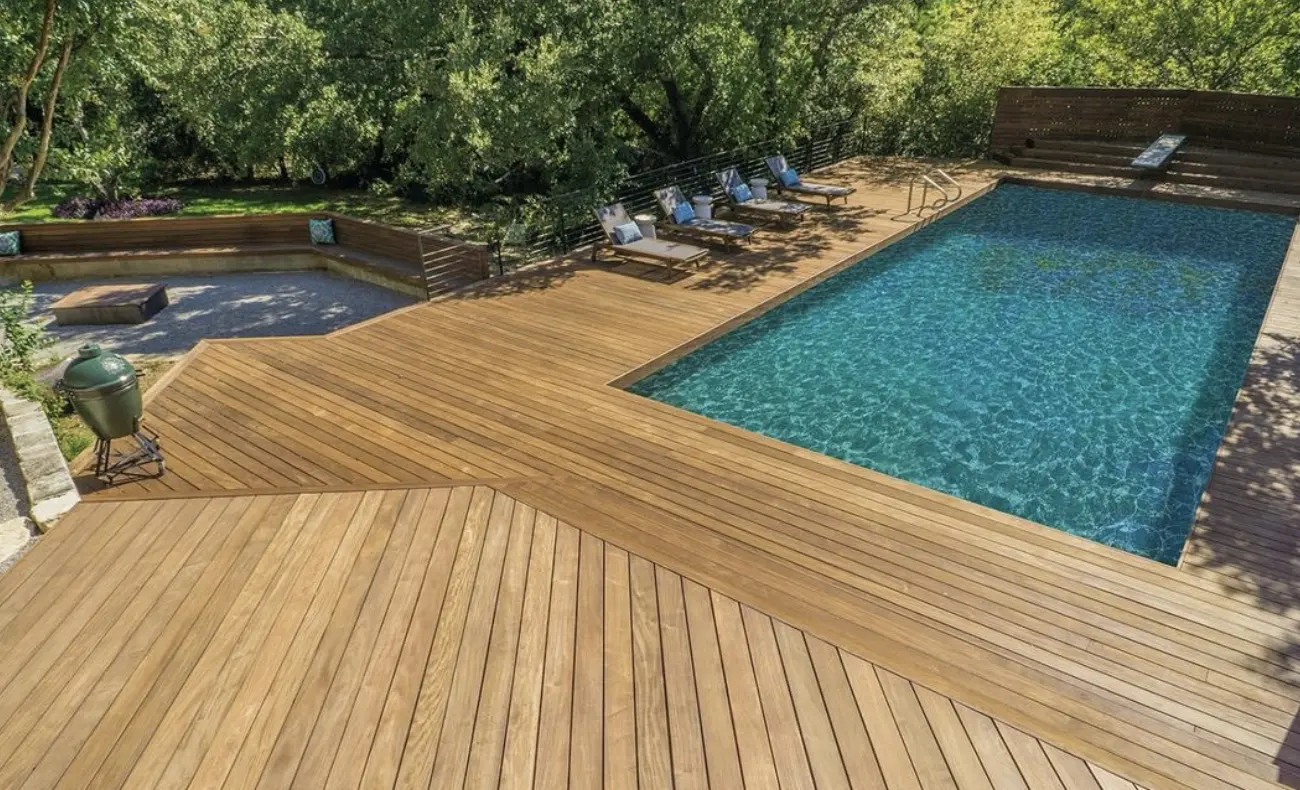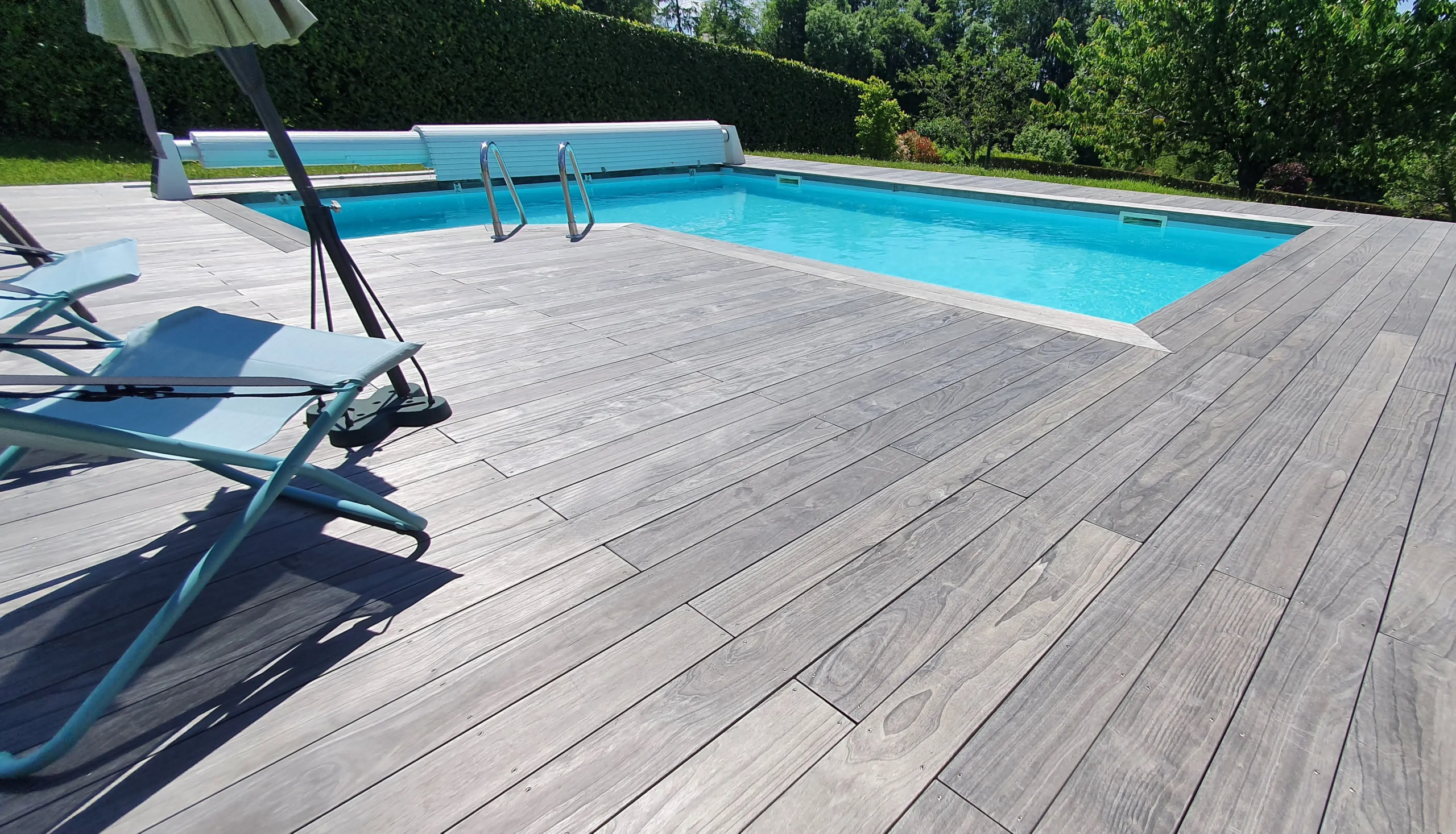- (877) 892-4655
- EASY FINANCING
- 10,034 TREES PLANTED
A poolside deck isn’t just about looks, it’s about comfort, safety, and long-term performance. And if you’re considering tropical hardwoods for the job, you’re already headed in the right direction.
Ipe, Cumaru, Garapa, and Tigerwood are some of the most trusted hardwoods for poolside installations across Southern California, and for good reason. These species offer a rare combination of beauty, resilience, and barefoot-friendly performance that softwoods and composites often struggle to match. But before you dive in, there are a few key things to know about installing hardwood pool decking next to a pool.
Here’s what matters and how to get it right.
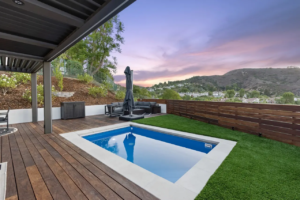
Safety is always top of mind around a pool, especially if you’ve got kids, pets, or guests moving around barefoot. One of the standout features of tropical hardwood decking like Ipe and Cumaru is their natural slip resistance, even when wet. These woods have a dense, tight grain structure that provides traction without the need for surface coatings or additives.
Unlike composites or painted decking, which can get slick over time, hardwoods retain their grippy surface, especially if properly maintained. Garapa and Tigerwood also offer excellent underfoot safety and tend to resist splintering better than softer species like redwood or cedar.
Pro tip: Choose a smooth (not grooved) face for hardwood pool decking, it’s easier to clean and even more comfortable underfoot.
Pool decks take a beating. Between chlorinated water, direct sun, and heavy foot traffic, materials break down fast if they’re not up to the task.
That’s where tropical hardwoods really shine. Ipe wood is famously dense, so dense it doesn’t float, and boasts a natural resistance to rot, mold, and termites. It holds up for decades without chemical treatment, even in extreme weather or high-humidity zones.
Cumaru deck boards are nearly as tough, with a deep, golden-brown tone and high oil content that naturally repels moisture. Garapa, a lighter honey-blond wood, offers similar durability at a slightly lower price point. And Tigerwood brings bold striping and a hard, smooth surface that’s both eye-catching and long-lasting.
Bottom line: These woods were born in tropical climates, so they’re built to handle moisture, heat, and UV exposure with minimal warping or decay.
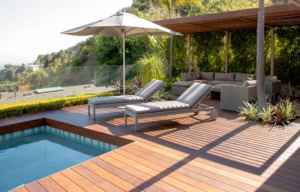
It’s a common misconception that dark woods like Ipe automatically get scorching hot in the sun. The reality? Thanks to their density and tight grain, tropical hardwoods don’t absorb and retain heat the same way composites or softwoods do.
While any surface can get warm on a 100° day, Ipe and Garapa in particular stay surprisingly comfortable underfoot, even in direct sunlight. That’s why you’ll find these materials on high-end hardwood pool decking projects throughout Los Angeles, Orange County, and beyond.
Tip for cooler decks: Choose lighter species like Garapa or Tigerwood, or install with partial shade (pergolas, umbrellas, etc.) for maximum barefoot comfort.
Tropical hardwoods are incredibly stable, but no wood is immune to moisture movement. That’s why proper spacing and drainage are non-negotiable for any poolside installation.
Make sure your installer leaves adequate gaps (typically 3/16″ to 1/4″) between boards to allow water to drain and evaporate. And don’t skimp on the substructure. Use pressure-treated or steel framing where needed to prevent long-term moisture damage.
If your deck sits flush with the pool coping, it’s also important to account for splash zone runoff and potential standing water. A slight slope away from the pool edge and well-positioned weep holes can help keep your deck surface dry and your hardwoods in peak condition.
Bonus: Ipe and Cumaru don’t cup or crown easily, even with heavy water exposure, another reason they’re ideal for wet environments.
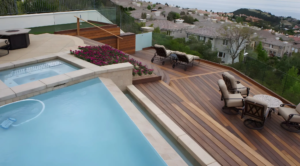
One of the reasons tropical hardwoods last so long is their low maintenance needs, but “low” doesn’t mean “none.”
For hardwood pool decking, we recommend:
Pro tip: Letting your deck go gray? That’s totally fine. It won’t impact performance, just aesthetics.
If you’re building or upgrading a poolside deck in Southern California, tropical hardwoods like Ipe, Cumaru, Garapa, and Tigerwood are some of the best materials you can choose, hands down. They’re not only beautiful, but they stand up to everything your backyard (and your family) throws at them.
At Beyond Lumber, we stock premium hardwood pool decking in a variety of dimensions, lengths, and profiles, plus all the accessories and tools you need to get the job done right.
Reach out for pricing, recommendations, or help planning your next project. We’re here to make your poolside deck last and look great doing it.
people also liked
